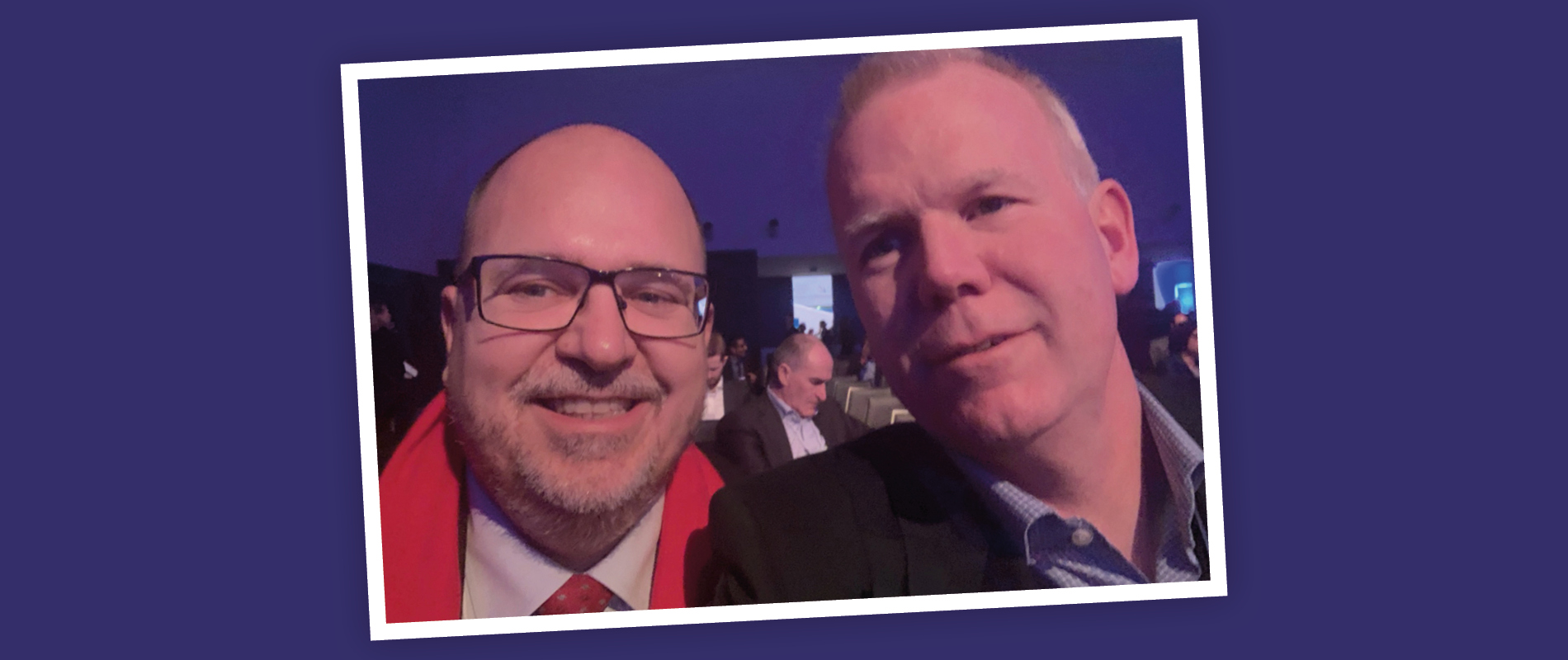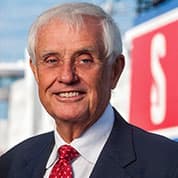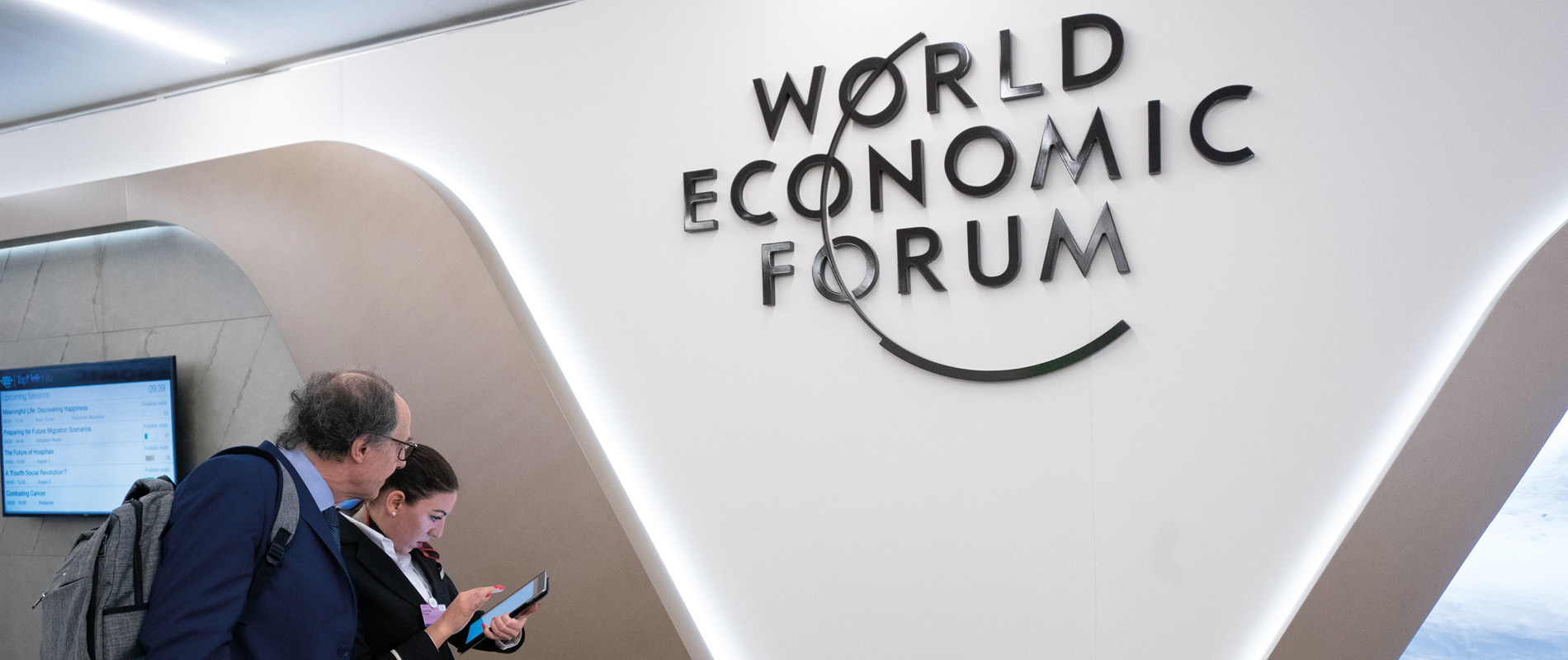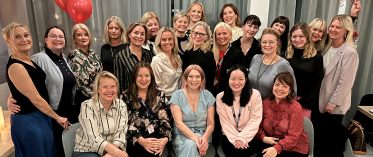Reflections from the
World Economic Forum in Davos 2019
The World Economic Forum was founded in 1971 by a professor of economics who wanted to gather important stakeholders for the purpose of informing, discussing and developing action plans for the benefit of the world. The purpose is summarized in the goal formulation: "Committed to improving the state of the world". Over the years, the forum has grown to become an important and unique meeting place in business life and between companies, political decision makers and research, often represented by interest groups. Everyone is not welcome, it is by invitation only.
During the annual meeting week in the Alpine village, access is strictly controlled by the Swiss army, the police and countless security guards. Out of the approx. 3,000 participants, about half are from the business community, which are representatives of the largest companies in the world, and about half are politicians, researchers or representatives of interest groups. This year, around 30 heads of state, representatives of most large multilateral organizations such as the UN, the IMF, the World Bank, but also prominent researchers and interest organizations such as Greenpeace and the 16-year-old Swedish girl Greta who is on strike from school, joined the meeting.
The formal program consists of approximately 400 different seminars that in various ways touched on the theme of the year – “Shaping a global architecture in the age of the 4th Industrial Revolution”. Political leaders made grand statements, challenges were discussed and information and research findings were shared. Outside the actual congress and formal program, just as many seminars were held by companies and organizations. These are often smaller, but perhaps even more dynamic. However, the real activity lies with the informal networks and smaller meetings that take place separate from the program. Apps, links, groups, meeting rooms, meeting landscapes, and everything else you can imagine, are well arranged.
The program is hectic. Breakfast seminars often start at 7 am. You can manage 5-6 seminars a day and maybe as many meetings. Double dinners, which in itself is not unusual for me, were followed by double cocktails in the evenings.
I have found it difficult to make a meaningful and simple summary of the discussions. But here are some main themes:

Selfie together with the Swedish LO union chairman Karl-Petter Thorwaldsson.
From an economic perspective the world is doing fine, thanks to globalization, peace and technology. Overall, the earth has never experienced so much prosperity as today and the economic indicators are strong. Brexit was barely discussed at all and most people believed that the US and China will eventually fix a trade agreement.
Companies and business leaders are the ones who benefit the most from globalization. They are controlled by a Friedmanian focus on making money and serving their shareholders. However, politicians and existing structures do not have the ability to maintain confidence in open liberal market economies on their own.
The world is big and there are a great many perspectives and views on what constitutes a problem, and what the solutions are in regard to complex and integrated challenges.
USA and China see themselves and the world very differently. One country stands for individual rights and the other for social stability. The world is facing a major conflict in regard to economics and values.
The discord between the 28, soon 27, very independent EU countries is tangible and the fault lines are clearly noticeable both along a north-south and an east-west dimension. The EU will probably continue to be successful, but structural reform or global leadership is not to be expected. Cecilia Malmström, our Swedish trade commissioner, has global heroic status thanks to the battery of bilateral trade agreements and reforms in the WTO.
The sustainability discussions completely dominate the European political agenda and are supported by science. From a political perspective, the US was not present, so Johan Rockström’s warnings about a “global hot house” were alarming, but will probably not lead to the radical changes that the world demands in order to avoid dramatic changes to our planet.
In 1950, Europe had twice as many inhabitants as Africa. Now, Africa has twice as many inhabitants as Europe and in 2100, Africa will have ten times more inhabitants than Europe. Africa has its own discussion and is politically occupied with fighting poverty for the approximately 800 million people who still live under the poverty line.
The oceans and ocean environment were high on the agenda. Plastics and plastics in the sea catalyze a lot of focus also on other issues such as fishing, the sea’s capability to feed 10 billion people, the sea as CO2 sink, acidification and temperature rise. Stena’s work on supporting the organization Conservation International and their so-called Ocean Health Index is valuable and has attracted attention. Similarly, Marie Eriksson’s support for an incubator for new companies in the marine environment area has good impact and gives Stena a voice in the conversation. One of my strongest impressions from the conference was the UN’s envoy for the sea, Peter Thomson’s statement “We cannot afford to be pessimists”.
“De-carbonisation of shipping” and “The future of transportation and logistics” were themes that were discussed at several seminars. Together with Maersk we have a leading voice in those conversations. Stena Line’s methanol operation means that we are clearly perceived as technically leading and solution-oriented. We should be proud of what we do, but the pressure to find non-fossil solutions for air and sea is significant and it will only increase.
Stena is part of a group representing the transport and logistics companies where volumes, legislation and technology were discussed. Traditional industry is facing a major upheaval thanks to digital platforms, not least in the transport sector. Everyone is afraid of Amazon. Everyone has the ambition to redesign their business models entirely, everyone understands that data is key and everyone struggles to be able to transform quickly enough. Every company must find its own incremental way – ready-made consulting solutions do not work – and everyone in a leading position within a company has to understand the challenge – if not then you have to replace people quickly.
Several pure platform companies have clear ambitions to make companies like ours, i.e. “asset owners” into “commodities”. They have created tremendous valuations of their companies based on the fact that they will be successful. That really gave me something to think about and is the core of the logistics positioning we have set in Stena over the past few years. Are we fast enough?
If we, as “traditional companies”, are afraid of Amazon, the tech companies are afraid of Alibaba and Tencent – the so called super platforms – something that Björn Linder, CIO Long Term Equity, constantly reminds me of. We are back to the fact that much of the development in the world takes place in China. China’s vice president was there, as was Jack Ma and many others. It is, however, obvious that the agenda is still set by Westerners who do not have insight in or understanding of what is the underlying development in China or in Chinese companies. In purchase power parity (PPP), China is the world’s largest country, the US is number 2, India number 3 and Japan number 4. All these countries are located far from Davos.
To sum up, I think it is extremely valuable that there is a forum where politics, companies and interest organizations meet and that Stena is part of that dialogue. It is undoubtedly also invaluable to be able to have free and easy discussions with the heads of many of our customers, suppliers and our legislators. However, with influence and power comes also responsibility. We carry that responsibility as a company and as privileged individuals in privileged countries. There is no global plan – we are the plan.







